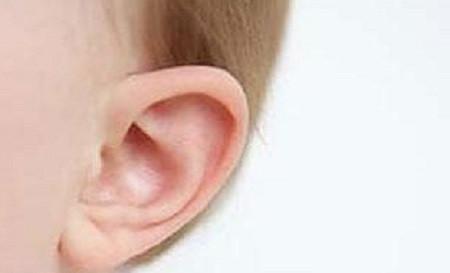Acute otitis media in children is an infection of the middle ear cavity caused by bacteria or viruses entering the tympanic chamber through the Eustachian tube, generally within 48 hours and the duration of the disease does not exceed 3 months. The most common pathogenic bacteria are pneumococcus, Haemophilus influenzae untyped, Moraxella catarrhalis, and Staphylococcus aureus. These pathogenic bacteria are also the most common bacteria in colds, so acute otitis media in children is also more secondary to colds.

Otitis media tends to occur in children under 8 years of age, which has a certain relationship with the structure of children's ears. There is a Eustachian tube in the ear cavity and throat of the human ear, and the Eustachian tube is shorter than that of adults, which is more susceptible to bacteria. Because the initial symptoms are not significant and the child's ability to express itself is limited, the treatment of otitis media in children is often delayed.
If parents find that children have unexplained continuous shaking of their heads, scratching their ears with their hands, or refusing to breastfeed, crying at night, not stopping to use their hands to grasp the ears, ear secretion flow, etc., at this time, parents should pay more attention to the otolaryngology department as soon as possible to check and reduce the otitis media to bring more harm to children.
According to the following circumstances, it is possible to preliminarily determine whether the child has otitis media
1. Unexplained fever of more than 38 °C for one week.
2. After a cold, you often cry, or pull your ears with your hands.
3. Purulent mucus discharge from the ear.
4, viscous snot and yellow eye feces more and more.
5. Sleep for a long time, repeatedly have thick snot and nasal congestion.
6. Children's hearing loss.
7. Measure the child's bilateral ear temperature, if the difference is more than 0.5 °C, consider that the ear on the side with a high temperature has otitis media.
If your child has more than one of these symptoms, it is recommended to seek medical attention to confirm the diagnosis.
Treatment must be thorough and effective to avoid turning into chronic otitis media. For acute purulent otitis media caused by bacterial infection, antibiotics are usually treated with symptomatic treatment, and for non-bacterial infection of otitis media, it is usually symptomatic. It is not recommended that parents take medicine for their children casually, so as not to cause the abuse of antibiotics, and should follow the doctor's instructions.
Prevent otitis media away from bacteria and viruses
1, to wash hands frequently, which is an important way to block the spread of bacteria and viruses. Especially after using the toilet, before soaking your child's milk powder, and after changing your diapers.
2. As far as possible, exclusively breastfeed the child until the age of six months to increase the child's resistance. Avoid having your child lie down and feed the bottle, and don't fall asleep with the bottle in place.
3. Rejecting the second-hand smoke of the family and being exposed to the second-hand smoke environment, in addition to the child's easy access to otitis media, it will also increase the risk of respiratory infections, bronchiolitis and pneumonia.
4. When bathing, try to avoid water or shampoo shower gel entering the ears. When swimming, pay attention to mastering the correct swimming method to prevent choking, and you can use earplugs to cover your ears.
5. Try to avoid external ear infection, do not put fingers, keys, etc. into the ear to pluck the ear, it is easy to scratch the ear and lead to infection.
6. Timely vaccination of pneumococcal vaccine, which is one of the culprits of otitis media. Regular annual influenza vaccinations can reduce ENT diseases caused by upper respiratory tract infections.
7. Pay attention to the influence of adjacent organs, such as sinusitis, tonsillitis, etc., and pay attention to the treatment of this type of disease.
In addition, children who are prone to allergies are also more likely to develop otitis media, so it is necessary to actively treat children-related allergic diseases, such as eczema.